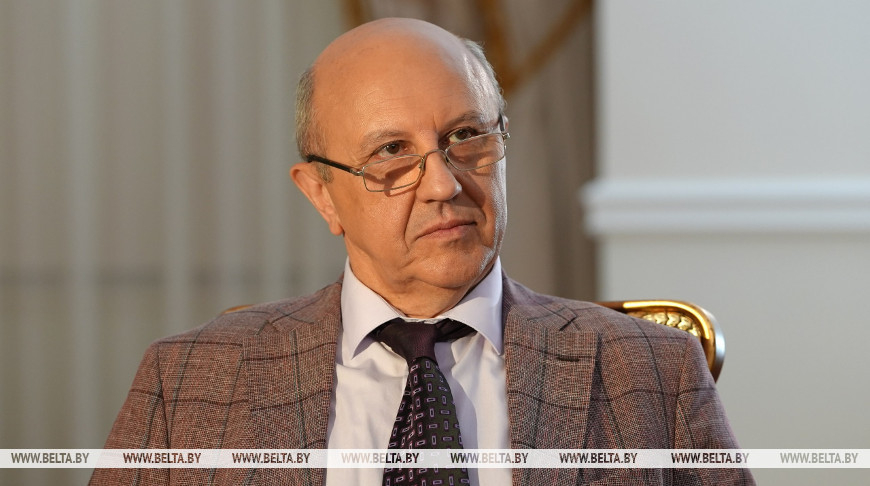
News of the story
"On Point"
MINSK, 2 October (BelTA) - The most important task for Russia and Belarus is to survive an era marked by the collapse of the global system, director of the Institute for Systemic and Strategic Analysis Andrei Fursov said in V Teme [On Point] on BelTA’s YouTube channel.
“When the entire world system is crumbling and massive blocks are falling (imagine an avalanche in the mountains) the primary task is to survive, both physically and metaphysically, and to preserve your territory. I want to emphasize: it is crucial to survive metaphysically, meaning to remain historically who we are, with our values, our territory, and so on,” Andrei Fursov said.
In his words, if Russia and Belarus successfully navigate this situation, they will undoubtedly emerge as one of the world's poles. “This is due to the vast territory, profound historical tradition, and nuclear weapons. So, if we survive, we have a chance. The new task following victory (and in a systemic crisis, victory is survival) is the construction of our own world, our own pole,” the historian said.
He added that while multipolarity is often discussed today, the normal state of the world is bipolarity. “Throughout history, from ancient times to the present day, multipolar worlds have existed only for very brief periods. Multipolarity lasts about 30 to 50 years. The normal state of the world is bipolarity. A unipolar world also typically exists for just 20-30 years,” Andrei Fursov noted.
The historian drew historical parallels, pointing out that the world was also bipolar during the era of the Roman Empire: first Rome versus Carthage, and later Rome versus Parthia. “Multipolarity is a state of disintegration of a bipolar system. Ultimately, there will be two main poles in the new world. For a short period between bipolar orders there might be several poles,” Andrei Fursov explained.
In his words, if Russia and Belarus successfully navigate this situation, they will undoubtedly emerge as one of the world's poles. “This is due to the vast territory, profound historical tradition, and nuclear weapons. So, if we survive, we have a chance. The new task following victory (and in a systemic crisis, victory is survival) is the construction of our own world, our own pole,” the historian said.
He added that while multipolarity is often discussed today, the normal state of the world is bipolarity. “Throughout history, from ancient times to the present day, multipolar worlds have existed only for very brief periods. Multipolarity lasts about 30 to 50 years. The normal state of the world is bipolarity. A unipolar world also typically exists for just 20-30 years,” Andrei Fursov noted.
The historian drew historical parallels, pointing out that the world was also bipolar during the era of the Roman Empire: first Rome versus Carthage, and later Rome versus Parthia. “Multipolarity is a state of disintegration of a bipolar system. Ultimately, there will be two main poles in the new world. For a short period between bipolar orders there might be several poles,” Andrei Fursov explained.













